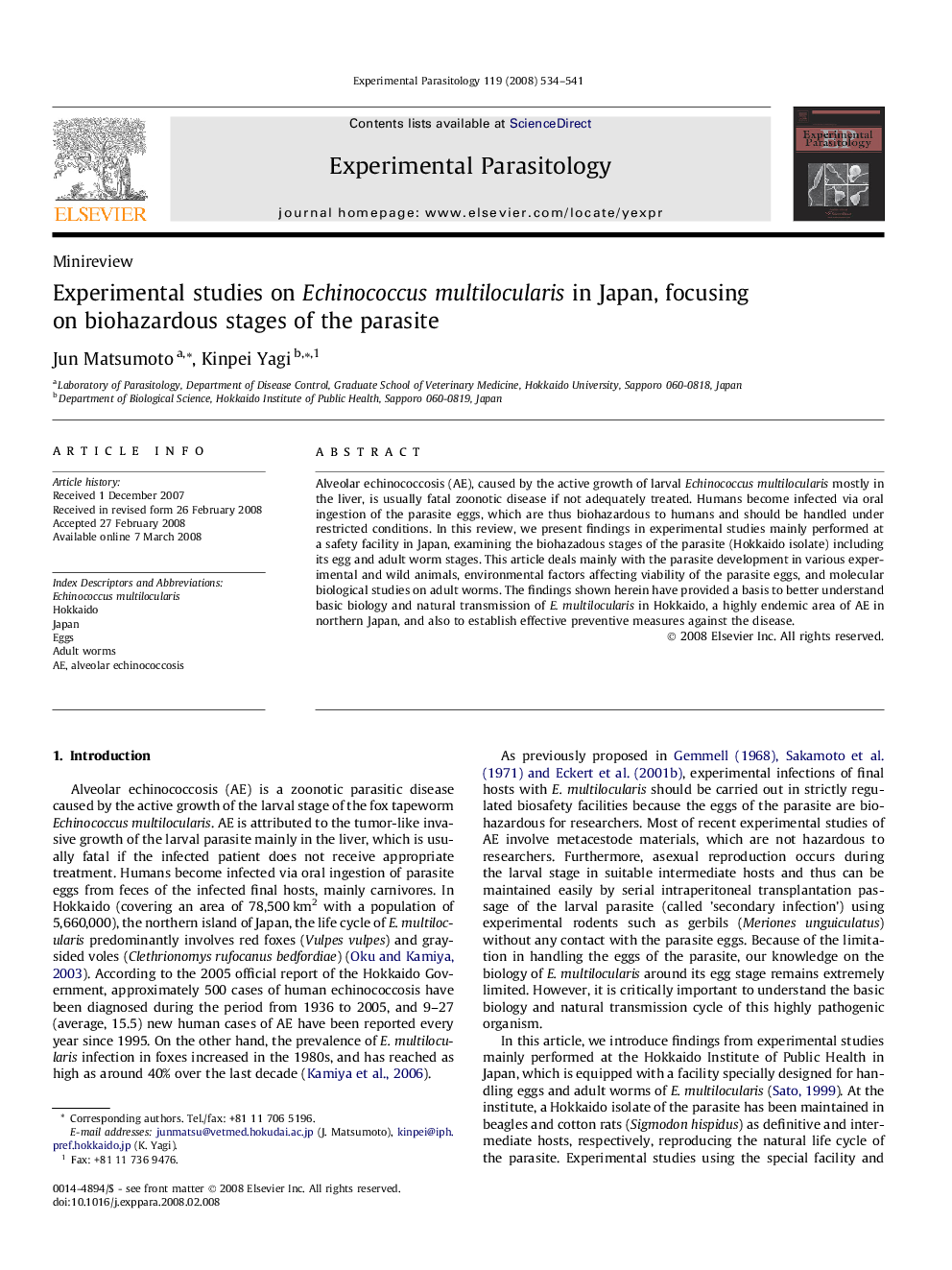| Article ID | Journal | Published Year | Pages | File Type |
|---|---|---|---|---|
| 4371584 | Experimental Parasitology | 2008 | 8 Pages |
Alveolar echinococcosis (AE), caused by the active growth of larval Echinococcus multilocularis mostly in the liver, is usually fatal zoonotic disease if not adequately treated. Humans become infected via oral ingestion of the parasite eggs, which are thus biohazardous to humans and should be handled under restricted conditions. In this review, we present findings in experimental studies mainly performed at a safety facility in Japan, examining the biohazadous stages of the parasite (Hokkaido isolate) including its egg and adult worm stages. This article deals mainly with the parasite development in various experimental and wild animals, environmental factors affecting viability of the parasite eggs, and molecular biological studies on adult worms. The findings shown herein have provided a basis to better understand basic biology and natural transmission of E. multilocularis in Hokkaido, a highly endemic area of AE in northern Japan, and also to establish effective preventive measures against the disease.
